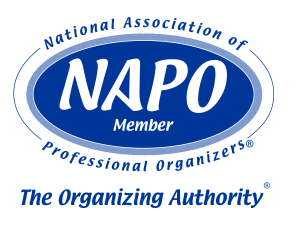 Unfortunately, my husband and I had to make an unexpected trip to the hospital recently. As to be expected when leaving the house under those circumstances, we were not thinking clearly. Because we assumed we were coming back home within a few hours, we were woefully unprepared for an overnight stay. Fortunately for us, we have an amazing support structure that stepped in to help, which further clarified how important home organization is, especially when we were not at home.
Unfortunately, my husband and I had to make an unexpected trip to the hospital recently. As to be expected when leaving the house under those circumstances, we were not thinking clearly. Because we assumed we were coming back home within a few hours, we were woefully unprepared for an overnight stay. Fortunately for us, we have an amazing support structure that stepped in to help, which further clarified how important home organization is, especially when we were not at home.
The launching pad: Fortunately, my husband and I always put our wallet/handbag and keys in the same place every day. I refer to this as our daily launching pad area. Everything you need to take with you when you leave the house should be in this area. Knowing where his launching pad was kept me from having to run around the house trying to find his wallet to ensure I had his driver’s license and insurance information.
Clothing: Once it became apparent we were staying for a while, our friends offered to grab some clothes and bring them to the hospital. Although we didn’t need to have them bring any clothing, having an organized wardrobe system would have allowed me to tell them exactly where everything was that we needed . . . socks in the upper right drawer, t-shirts in the middle right drawer, jeans hanging on the left side of the closet third hanger in, etc.
Personal items: Again, because we have a system, I would have been able to let our friends know exactly where to find the travel toothbrush/toothpaste kit; my contact care kit; makeup remover pads; etc. All things we would have needed if our stay had been extended past 24 hours.
Accessories: One of the most important things we can do in these situations is to stay in contact with our loved ones. I didn’t have the foresight to bring a phone/iPad charger with me when I left the house, so having them bring chargers was a necessary. It was nice to be able to say “The chargers are in the kitchen, center plug. Please bring the 4-plug charger, two small Apple chargers, and the one large Apple charger.” Because things were actually where they were supposed to be, it was much easier for our friends to help us out.
I hope to not have to do this again, but I feel better knowing the effort we put into organizing our home made it much easier for people to help us.
How would your current state of home organization work in a crisis?
Cindy Jobs




